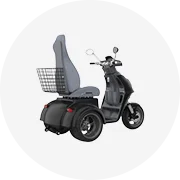Gas-powered golf carts serve not only as an integral part of the golfing experience but also as versatile vehicles for short-distance transportation. Powered by traditional combustion engines, these carts possess the advantage of extended range and power, making them suitable for varied terrain and heavier loads. Gasoline golf carts are often favored for their reliability and ease of refueling, which can be advantageous over electric counterparts that require charging. Their ease of use makes them an excellent choice for applications beyond the golf course, like in large facilities or gated communities. Gas-operated golf carts represent a flexible, reliable, and efficient solution for both recreational and utility transportation needs. A common addition to gas-powered golf carts is a weather enclosure, which provides protection from rain, sun, and other elements. Some models include adjustable seating arrangements to accommodate varying numbers of passengers or cargo space. More advanced carts might feature built-in GPS systems for easy navigation on sprawling golf courses or large properties. Mechanically, gas carts often boast superior suspension systems, ensuring a smooth ride on uneven terrain.
Advantages of gas-powered golf carts
Street-legal gas powered golf carts shine in terms of power and performance, as they are capable of reaching higher speeds and traversing varied terrain with ease. This makes them an ideal choice for golf courses with hilly landscapes or rough terrains. They exhibit superior towing and carrying capacities, particularly useful when transporting heavy golf equipment or multiple passengers. With an extended range due to fuel efficiency, gas-powered carts assure uninterrupted service throughout an entire round of golf or even longer.
Maintenance of gas-powered golf carts is also relatively straightforward, similar to maintaining a standard automobile. They are equipped with robust combustion engines that have been proven reliable over time. Unlike electric golf carts that require battery replacements every few years, gas carts are more durable and often have a longer lifespan. Easy refueling eliminates the wait time associated with recharging batteries, providing instant readiness for use. This makes gas-powered golf carts an optimal solution for constant and immediate use.
Comparing gas-powered vs electric golf carts
When assessing performance, gas-powered and electric golf carts each have distinct attributes that make them suitable for different scenarios. Gas golf carts, with their combustion engines, are known for their ability to traverse hilly terrains, thanks to the continuous power supply from the gas engine. They also provide a higher speed range, making them ideal for larger golf courses or facilities. Gas-powered street-legal golf carts are an excellent choice for larger facilities, gated communities, or even for short commutes within a neighborhood, given their power, speed, and the convenience of refueling.
In contrast, electric golf carts shine in terms of operational efficiency and environmental impact. They operate quietly and smoothly, offering a pleasant, noise-free experience. These carts run on rechargeable batteries, eliminating emissions and making them an eco-friendly alternative. Although electric golf carts may require more frequent charging, advancements in battery technology have significantly increased their range. The maintenance costs for electric models tend to be lower, as they have fewer moving parts and do not require oil changes or fuel, making them a cost-effective solution in the long run.









































 浙公网安备 33010002000092号
浙公网安备 33010002000092号 浙B2-20120091-4
浙B2-20120091-4